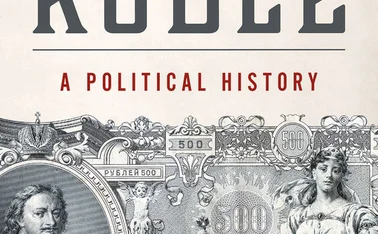
Bank of England faces legal challenge over all-male banknote roster

The Bank of England is facing a legal challenge over its decision to put an image of Winston Churchill on the new £5 note, replacing the last woman on a UK banknote – except for the head of state.
The challenge was initiated by Caroline Criado-Perez, a feminist campaigner who founded The Women's Room, a database of female experts that aims to "provide women with a collective voice". She initially sent a letter of complaint to the Bank of England, but finding the Bank's response inadequate, has now initiated legal proceedings –with advice from solicitor Louise Whitfield of law firm Deighton Pierce Glynn.
Criado-Perez said her complaint is not so much about the choice of Winston Churchill (although she favours scientist Rosalind Franklin), but more about the process itself. "We are not trying to get a court to say 'you have to get a woman on the banknote'," she told CentralBanking.com. "It is about the process, making sure they pay due regard to equality."
The challenge is based on the Equality Act, 2010. Section 149(1) states that a public authority must, in the exercise of its functions, have "due regard" to the need to "eliminate discrimination", "advance equality of opportunity" and "foster good relations" between people who share a "protected characteristic" – such as being female or a member of an ethnic minority – and those who do not.
The Bank of England declined to comment due to the ongoing legal proceedings, but a spokeswoman did supply a freedom of information release that gives some details regarding the decision process behind the choice of the Winston Churchill design.
The document says the central bank considered four shortlisted candidates for the banknote – Winston Churchill, "together with a female character and two other male characters". None of these 'characters' were identified.
"The selection decision was made taking into account objectively selected criteria," the central bank said. The criteria are: "Whether the person had made a lasting contribution, which is universally recognised and has had enduring benefits; whether the person has broad name recognition; that the person should not be controversial; and that there should be good artwork upon which the Bank could base its pictorial representation."
Criado-Perez, however, is not satisfied. "One of the things I find odd about their response is that they are completely refusing to provide any evidence of the supposed steps they took to comply with the equality duty," she said.
Indeed, the freedom of information release goes into little further detail regarding the decision-making process, stating that greater disclosure "would be likely to inhibit the free and frank provision of advice and otherwise to prejudice the effective conduct of public affairs".
While the case is ongoing, Churchill remains set to replace Elizabeth Fry, the social reformer currently on the £5 note, in 2016.
Only users who have a paid subscription or are part of a corporate subscription are able to print or copy content.
To access these options, along with all other subscription benefits, please contact info@centralbanking.com or view our subscription options here: http://subscriptions.centralbanking.com/subscribe
You are currently unable to print this content. Please contact info@centralbanking.com to find out more.
You are currently unable to copy this content. Please contact info@centralbanking.com to find out more.
Copyright Infopro Digital Limited. All rights reserved.
You may share this content using our article tools. Printing this content is for the sole use of the Authorised User (named subscriber), as outlined in our terms and conditions - https://www.infopro-insight.com/terms-conditions/insight-subscriptions/
If you would like to purchase additional rights please email info@centralbanking.com
Copyright Infopro Digital Limited. All rights reserved.
You may share this content using our article tools. Copying this content is for the sole use of the Authorised User (named subscriber), as outlined in our terms and conditions - https://www.infopro-insight.com/terms-conditions/insight-subscriptions/
If you would like to purchase additional rights please email info@centralbanking.com
Most read
- ECB says iPhone is currently incompatible with digital euro
- Supervisors grapple with the smaller bank dilemma
- Schnabel: ECB could replace central forecast scenario







